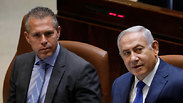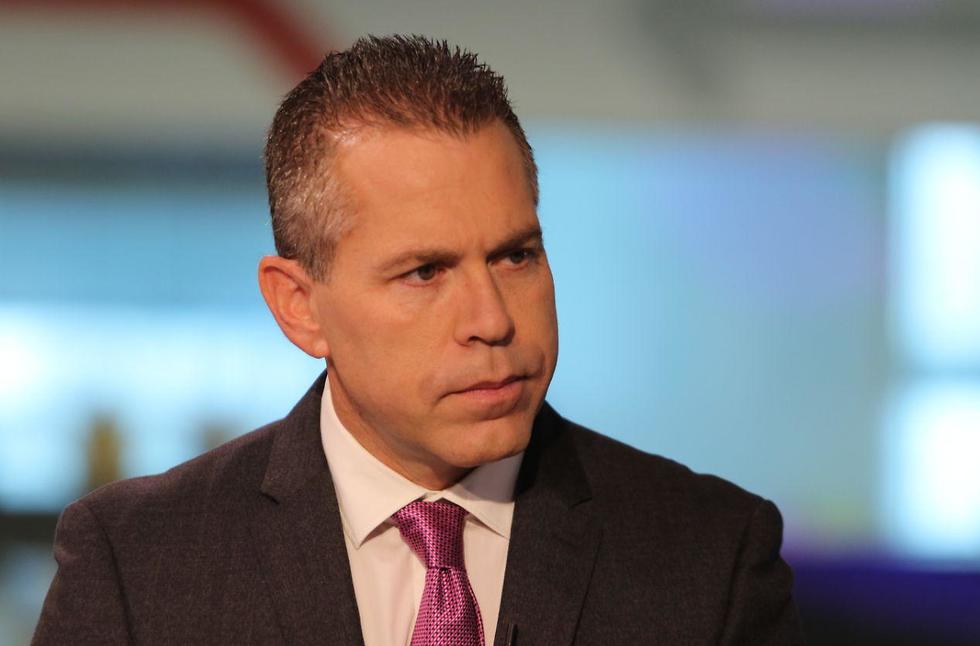
Netanyahu nixes vote on 'Facebook bill'
Second and third reading votes on legislation against online incitement postponed until Knesset's fall session, with the prime minister saying its current version 'enables a broad interpretation that may allow the censorship of opinions and may harm the freedom of expression.'
Prime Minister Benjamin Netanyahu nixed the vote Wednesday on the so-called 'Facebook bill,' which seeks to give the State of Israel the authority to order online companies to remove content inciting to violence and terrorism.
"For fear of harming the freedom of expression and in order to ensure Israeli citizens' right to freely express criticism online, the prime minister has asked to stop the legislative process for the 'Facebook bill' and return it to its original version and purpose—preventing incitement to terrorism online," a statement from Netanyahu's Likud Party said.
"The prime minister believes the current version of the bill enables a broad interpretation that may allow the censorship of opinions and cause serious harm to the freedom of expression in the State of Israel," the statement added.
The legislation was scheduled to go to a vote in its second and third readings on Wednesday, the last day of the Knesset's summer session. Knesset members will now go on hiatus until the end of the High Holy Days in October. This means the Facebook bill will be delayed by at least a few months.
Under the proposed legislation, which passed its first reading in the Knesset in January 2017, the Court of Administrative Affairs may, at the request of the state, order websites—such as Facebook or Google—to remove inciting content.
Such an order may be issued under two conditions: when the content constitutes a criminal offense, and when there is a real possibility the content will pose a real threat to an individual, to public security or to state security.
Puiblic Security Minister Gilad Erdan (Likud), who sponsored the bill, came out again Netanyahu's decision to cancel Wednesday's vote. "I regret the decision to stop the vote. Incitement to violence and terrorism online has become in recent years one of the main factors driving terrorists to carry out attacks. A direct link has been shown between the level of incitement online and terror attacks being committed.
"Just recently, I had to turn to Twitter and ask them to close the accounts of the heads of declared terrorist organizations who were using Twitter to spread their messages," he went on to say. "Currently, we as a state do not have the authority or the ability to force Twitter to stop this incitement."
"The Knesset's Constitution, Law and Justice Committee has been deliberating the legislation I sponsored with Justice Minister Ayelet Shaked for a year and a half, and it created the required balance between the protection of the freedom of expression and our duty to protect the security of the state and its citizens. This balance was created by determining that only the attorney general may appeal to the District Court and request an order to remove inciting content," Erdan explained.
The public security minister added that senior legal advisors from government ministries and the Knesset participated in the legislative and drafting process to ensure that balance.
"This bill is vital for state security and to our ability to protect our citizens, and I hope we would be able to complete its legislation at the beginning of the next session," he said.
MK Revital Swid (Zionist Union), who sponsored the original Facebook bill, came out against the current version by Erdan and Shaked. "It is the duty of the state to protect the freedom of expression, the right to demonstrate and the right to criticize—even the judicial system and law enforcement," she said.
"A strong democracy can defend itself against incitement to terrorism on the internet while at the same time protect the freedom of expression, protest and demonstration," she added.
"I appeal to the prime minister, the ministers and the attorney general, stop this dangerous move. It's still not too late. Accept the reservations I submitted and return the bill to its proper proportions," she concluded.


















